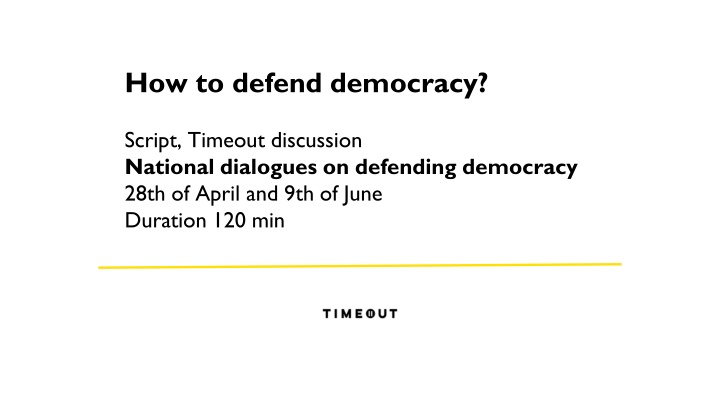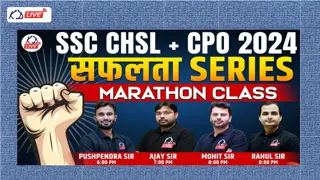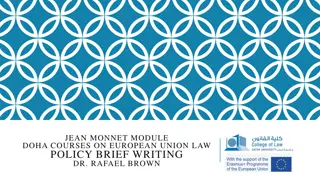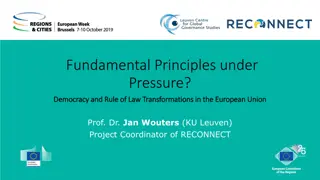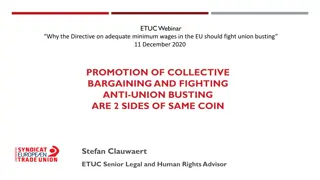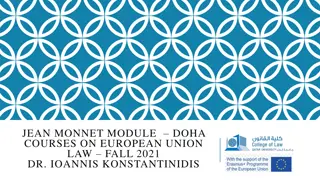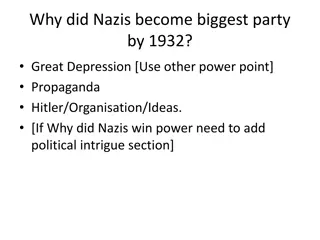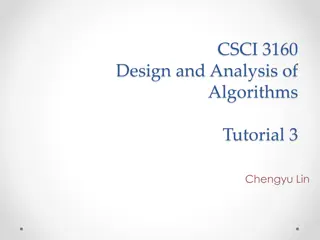Doha Courses on European Union Law & Policy Brief Writing
Learn about advocacy policy briefs, policy brief writing, and advocacy tools related to EU law, environmental law, and human rights. Enhance your skills in writing and promoting policy briefs under the guidance of Dr. Rafael Brown, a Clinical Assistant Professor at Qatar University.
Download Presentation

Please find below an Image/Link to download the presentation.
The content on the website is provided AS IS for your information and personal use only. It may not be sold, licensed, or shared on other websites without obtaining consent from the author.If you encounter any issues during the download, it is possible that the publisher has removed the file from their server.
You are allowed to download the files provided on this website for personal or commercial use, subject to the condition that they are used lawfully. All files are the property of their respective owners.
The content on the website is provided AS IS for your information and personal use only. It may not be sold, licensed, or shared on other websites without obtaining consent from the author.
E N D
Presentation Transcript
How to defend democracy? Script, Timeout discussion National dialogues on defending democracy 28th of April and 9th of June Duration 120 min
How to modify the script? Plan your dialogue beforehand. You can also use the cards for facilitating a discussion: https://www.timeoutdialogue.fi/tool/cards-for-facilitating-a-discussion/ The script is for the facilitator to help them to facilitate the dialogue. It s not necessary to share it with the participants. You can share for example the Ground rules and some of the questions beforehand for the participants. You can print the script for yourself. The script is an example. You can modify it to be more suitable for your group or use. The timing is also an example. You can modify it to be more suitable for your group or use. Use your own expertize about the topic, the group and the occasion. You can use the script in live and distance dialogues and it has tips for both.
How to defend democracy? Start Min Part Time Today, we re having a Timeout Dialogue based on your thoughts about the Democracy and how to defend it. I will facilitate the discussion. X will write down anonymously what has been said. Notes from all of the dialogues on how to defend democracy will be collected and published later in the organizer s website. 15 Start, Introduction, Rules for constructive discussion Joint dialogue, includes a short break Writing insights Sharing insights Thank you and ending 85 5 10 5 It would be nice to hear from all of you, who you are and what brought you to this discussion? We can introduce ourselves on first name basis. Altogether 120 min Take a short break during the conversation. How to read the script? Let s try to share our own thoughts and experiences confidentially. We don t have to agree. But let s try to understand the matter at hand and each other better. On the right, you can find a suggested way of verbalising the matter and tips. Basic font: You can say it like this, for instance. You can also verbalise the matters as you see fit. Font in italics: help for the instructor to facilitate the discussion. In the discussion, we don t have to make decisions or resolve anything. We can talk in peace. We use the Rules of constructive discussion in the discussion, now let s briefly go through them 10 min
These rules can be seen here on the chat (and also on the floor/wall throughout our discussion). Ground rules for a constructive discussion Do we all commit to these rules together? Great, let s continue. 1. Listen to others, do not interrupt or start additional discussions Ask everyone not to use their mobiles or laptops during the discussion and/or to focus on the matter, not reading emails or news at the same time etc. 2. Relate what you say to what others have said and use everyday language 3. Tell about your own experience You can ask if it s ok that you limit the duration of answers so that everyone has the time and the possibility to be part of the dialogue. Usually the participants support this. 4. Talk to others directly and ask about their views 5. Be present and respect the others and the confidentiality of the discussion Are you having a break? If yes, tell the participants when the break is being held. 6. Find and bring together. Boldly deal with emerging conflicts and find issues that have gone unnoticed for one reason or another. It s good to emphasize that the meaning of the Timeout Dialogue is to give as many as possible the possibility to speak out their experiences and thoughts. 5 min
Video (or other material) How to defend democracy? You can use the video or powerpoint slides provided or some other material you find meaningful regarding the topic. You can share the link of the video in the chat for participants to watch. Min Part Time 15 Start, Introduction, We re now going to watch a short video and hear more about our topic. Rules for constructive discussion Joint dialogue, includes a short 85 break 5 10 5 ************ Writing insights Sharing insights Thank you and ending Now it s a good time for you to think what our topic and the video you just saw evoked in you. Write down your own thoughts OR discuss with your pair. Altogether 120 min Take a short break during the conversation if needed. You can also share your thoughts and or emotions regarding the subject. On the right, you can find a suggested way of verbalising the matter and tips. Basic font: You can say it like this, for instance. You can also verbalise the matters as you see fit. Font in italics: help for the instructor to facilitate the discussion. Let s take about five minutes for this.
How to defend democracy? Joint dialogue Min Part It would be great to hear now what you thought or talked about. Who would like to go first? Time 15 Start, Introduction, And what did the rest of you talk about, something similar or completely different? What kinds of thoughts did you have of the video or about our topic? Rules for constructive discussion Joint dialogue, includes a short 85 break 5 10 5 Writing insights Sharing insights Thank you and ending If necessary, remind the participants of the rules of constructive dialogue to which everyone has committed. Altogether 120 min Take a short break during the conversation if needed. Direct the participants to connect what they are saying to what has been said previously and share their own thoughts and/or experiences. On the right, you can find a suggested way of verbalising the matter and tips. Basic font: You can say it like this, for instance. You can also verbalise the matters as you see fit. Font in italics: help for the instructor to facilitate the discussion. Make sure that also the more quiet ones have a chance to participate and that the active ones do not overly control the dialogue. 15 min
Joint dialogue continues How to defend democracy? Thank you for sharing your thoughts and experiences with us. I have couple of questions for you (if not raised yet). Choose questions you find suitable for your group. Min Part Time 15 Start, Introduction, What worries you about the future of democracy? What gives you hope or strengthens your trust? What do you do or could do in your everyday life to strengthen democracy? How could we as an organization defend democracy? What makes it difficult for you to defend democracy? What kinds of things and themes are connected regarding our topic? What do you think, how should we act at this moment? Why? More possible questions: Rules for constructive discussion Joint dialogue, includes a short 85 break 5 10 5 Writing insights Sharing insights Thank you and ending Altogether 120 min Take a short break during the conversation if needed. - Tell us about some events or situations that have contributed to what you think about the topic of this dialogue. What kind of emotions does the topic evoke? On the right, you can find a suggested way of verbalising the matter and tips. Basic font: You can say it like this, for instance. You can also verbalise the matters as you see fit. Font in italics: help for the instructor to facilitate the discussion. - You can take some of these questions in the chat or encourage for discussion in pairs. Make sure everyone can participate 50 min
Help for the facilitator Supporting democracy can be many different things, for example: Voting Active citizenship for example in NGO s, schools, communities, work or other organizations Defending equality, freedom and justice Organizing dialogues about meaningful and important issues, listening to others Taking part in public debate Taking part in politics Reading news, magazines and books, watching documentaries, listening to audio documentaries, getting more and / or in depth information Helping people in need, donating money on a good cause, being an ally or an activist Supporting others to know more about the possibilities to be an active citizen Volunteering in different organizations Doing research and or sharing important information or many other things, what comes to your mind?
How to defend democracy? Writing insights Min Part Thank you for a great and constructive discussion! Next, we will write the insights we gained in this discussion. Time 15 Start, Introduction, Think of a few insights, feelings or thoughts that remained in your mind from the discussion. Did you get any new thoughts of the topic? Do you perhaps now think differently about something than before? Write these in the chat (or in your own paper). Rules for constructive discussion Joint dialogue, includes a short break Writing insights Sharing insights Thank you and ending 85 5 10 5 Altogether 120 min Take a short break during the conversation if needed. (You don t have to write your own name. I will collect the insights written on paper at the end and create a summary for all of us.) On the right, you can find a suggested way of verbalising the matter and tips. Basic font: You can say it like this, for instance. You can also verbalise the matters as you see fit. Font in italics: help for the instructor to facilitate the discussion. You have a few minutes to do this. Pick one you would like to share with others. 5 min
How to defend democracy? Sharing insights Min Part Time Now I would like to ask each of you to share one insight or thought about this discussion or topic. 15 Start, Introduction, Rules for constructive discussion Joint dialogue, includes a short break Writing insights Sharing insights Thank you and ending 85 5 10 5 Let s start with you Choose a person who is likely to share their own insight with others as the first person. Altogether 120 min Take a short break during the conversation if needed. On the right, you can find a suggested way of verbalising the matter and tips. Basic font: You can say it like this, for instance. You can also verbalise the matters as you see fit. Font in italics: help for the instructor to facilitate the discussion. 20 min
How to defend democracy? Thank you and ending Min Part What did this Timeout dialogue and the topic feel like? What kind of a feeling or vibe did you get from the joint discussion? Time 15 Start, Introduction, Rules for constructive discussion Joint dialogue, includes a short Thank you all! 85 break 5 10 5 (Bring the insight papers to me before leaving. I will create a summary and share the insights with you later.) Writing insights Sharing insights Thank you and ending Hopefully, we can continue the discussion at some point! Altogether 120 min Take a short break during the conversation if needed. If you want, you can share your thoughts , feelings and/or your participation in social media. Please respect the confidentiality and anonymity of other participants if not decided otherwise. Use the hashtags #timeoutdialogue # On the right, you can find a suggested way of verbalising the matter and tips. Basic font: You can say it like this, for instance. You can also verbalise the matters as you see fit. Font in italics: help for the instructor to facilitate the discussion.
